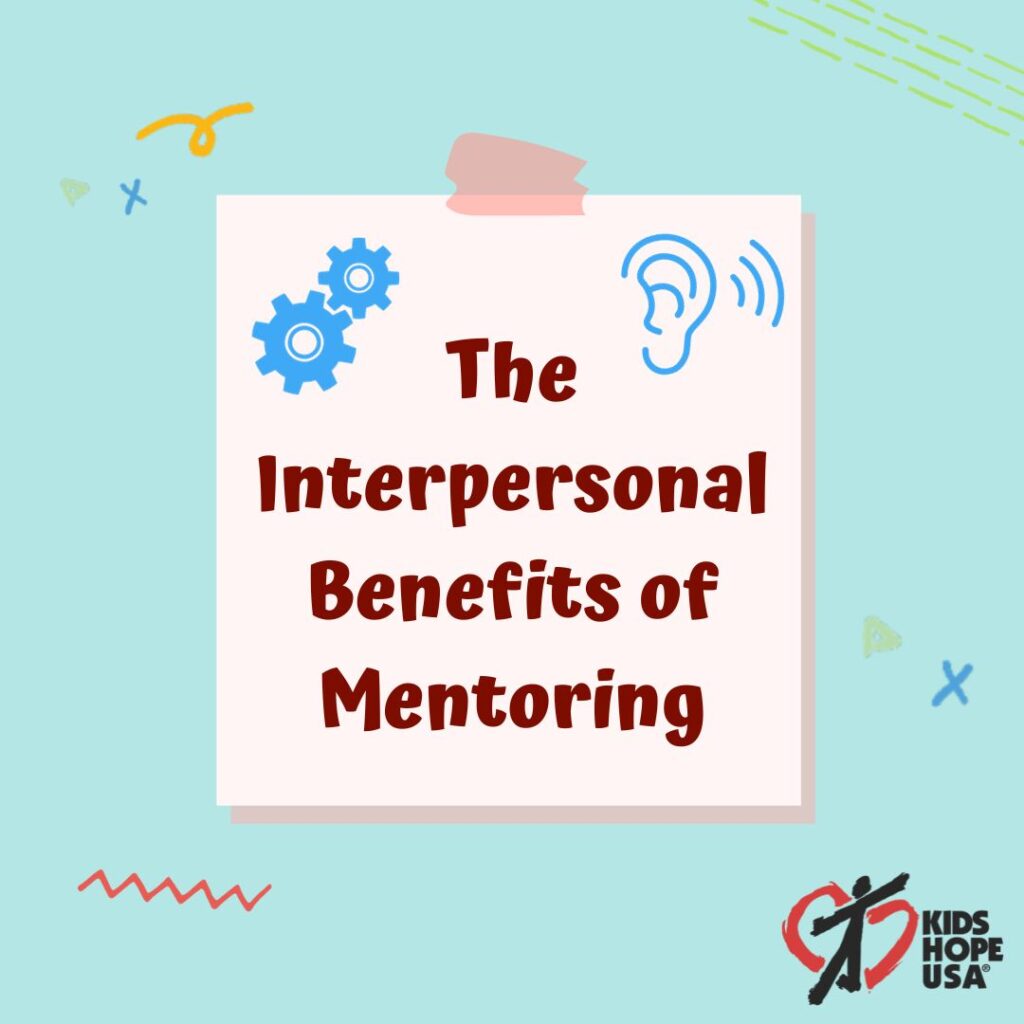
Interpersonal skills involve the way a student interacts with others in a social setting. A mentoring relationship serves as an opportunity for students to grow in these interpersonal skills by learning how to work as a team and listen to their friends.
Working as a team and listening to others are two of the most important interpersonal skills that children learn during their elementary years. Through a one-on-one mentoring relationship, children can advance these skills and continue to grow into great listeners and teammates.
How Mentoring Supports Interpersonal Skills
When a mentor and student meet regularly, behavior is among one of the many areas that a student will grow. This mentorship allows a child to work on these interpersonal skills.
Mentoring Advances Teamwork
In our blog post “Beyond Arts and Crafts: How Creative Activities Support Life Skills” we see how something as simple as working together to color a picture strengthens a relationship and reiterates the concept of teamwork.
Mentoring gives a child time to work with someone one-on-one to accomplish goals and complete tasks together. Whether it is playing a game or drawing a picture, these tasks show the student that working together and taking turns is the best way to complete a task.
Mentoring Increases Listening Skills
Listening is an important interpersonal skill that children need to learn from a young age. A mentoring relationship creates an opportunity for an adult to demonstrate listening skills and the importance of using these skills throughout everyday life. A mentor demonstrates these skills through asking questions regarding what the child has told them.
Mentoring Displays Consistency
Children pick up on behaviors quickly, so a mentor showing up for a child teaches that student how to be consistent and show up for others. When their mentor visits them weekly, students can elevate this relational skill.
Listening and remembering what your student told you the week before emphasizes the importance of this skill to a child. For example, if the child mentions to you that they are excited to go to the beach during their break, asking them about this trip the next time shows them that their mentor listens to them, remembers what they say, and truly cares about them.
Interpersonal Skills & Mentoring
Through a mentoring relationship, children are given the chance to work on their interpersonal skills firsthand. Working one-on-one gives a child space to further work on teamwork and listening skills to support their lives in the future.
“Students eagerly look forward to the day each week when their special mentor arrives just for them, giving them a safe space where they experience joy, laughter, friendship, and unconditional support. The children know they are not alone in the day-to-day challenges they face.” -Kids Hope USA School Administrator
Kids Hope USA is a proven and established mentoring program that connects elementary aged children with a mentor to spend one hour per week with just each other. Another consistent and caring adult can be beneficial to all children and gives them space to continue to grow in their interpersonal skills.
Learn more about being a mentor at Kids Hope USA by visiting our program page!
